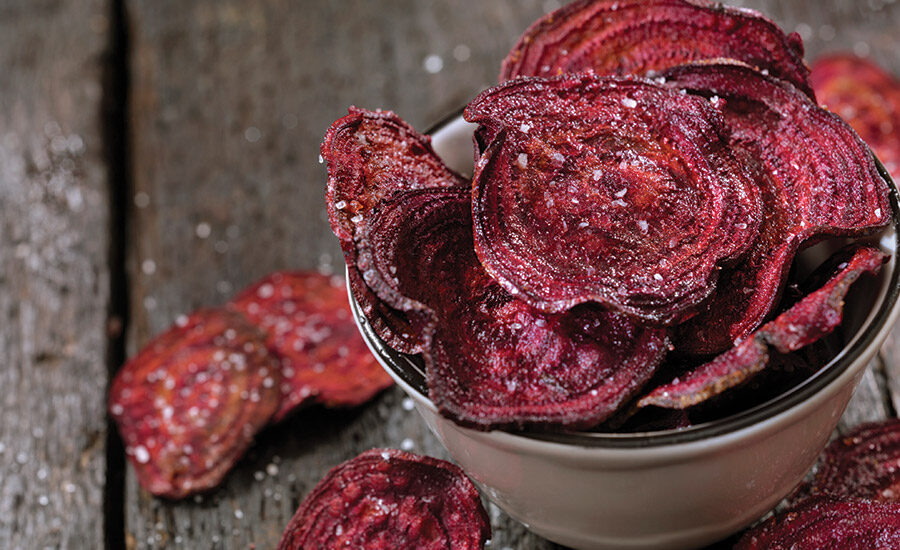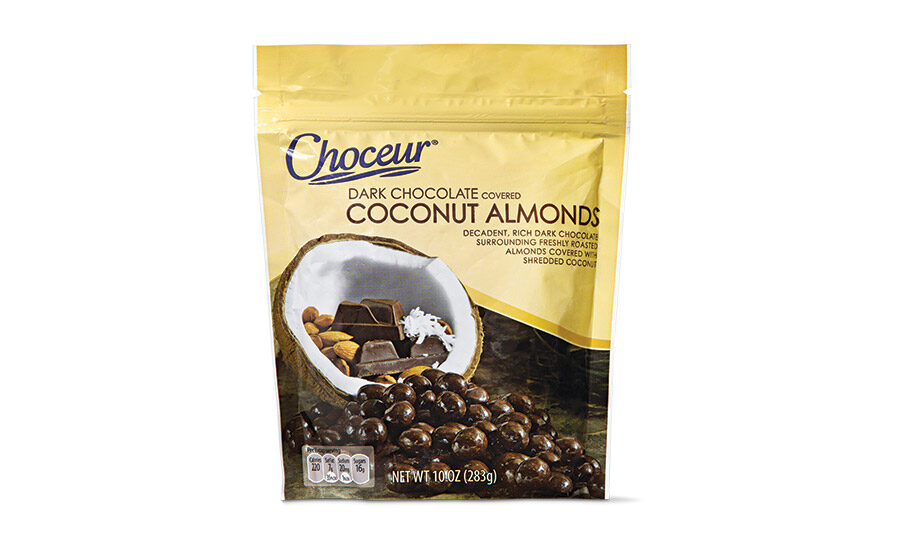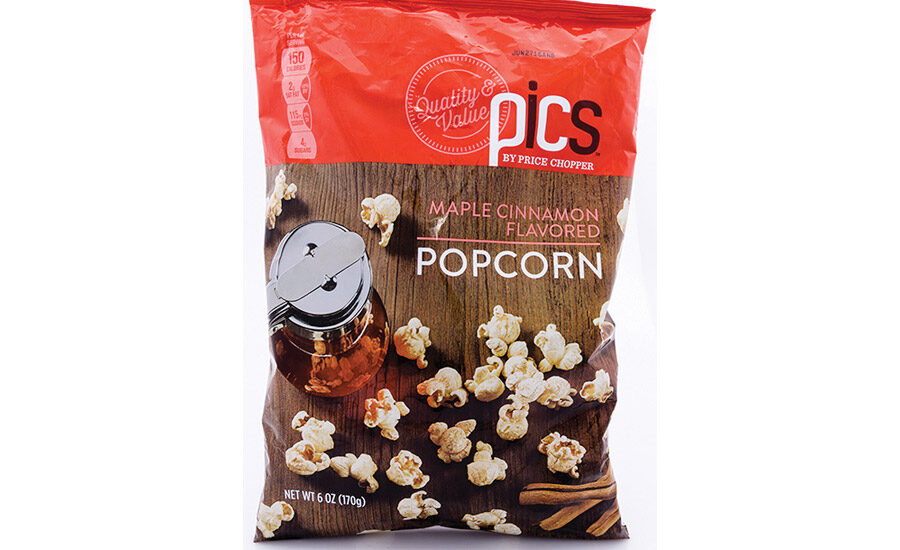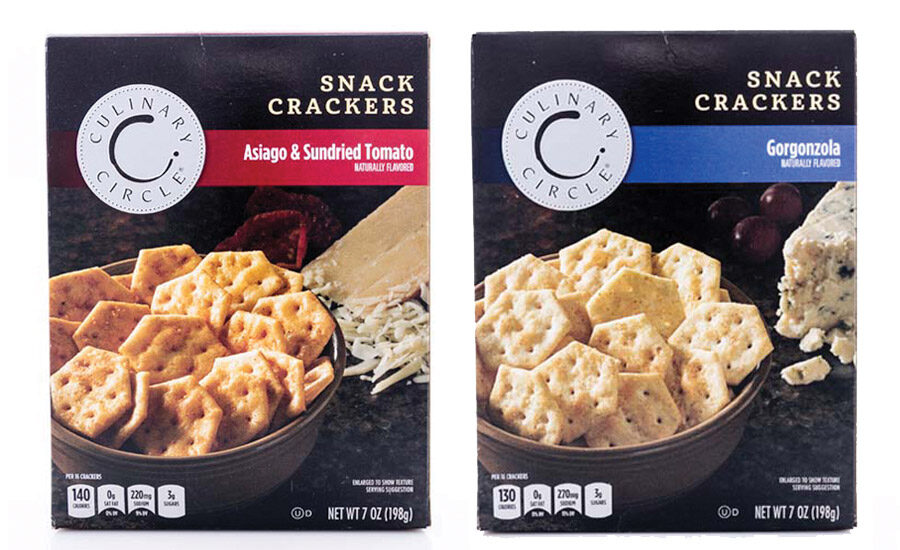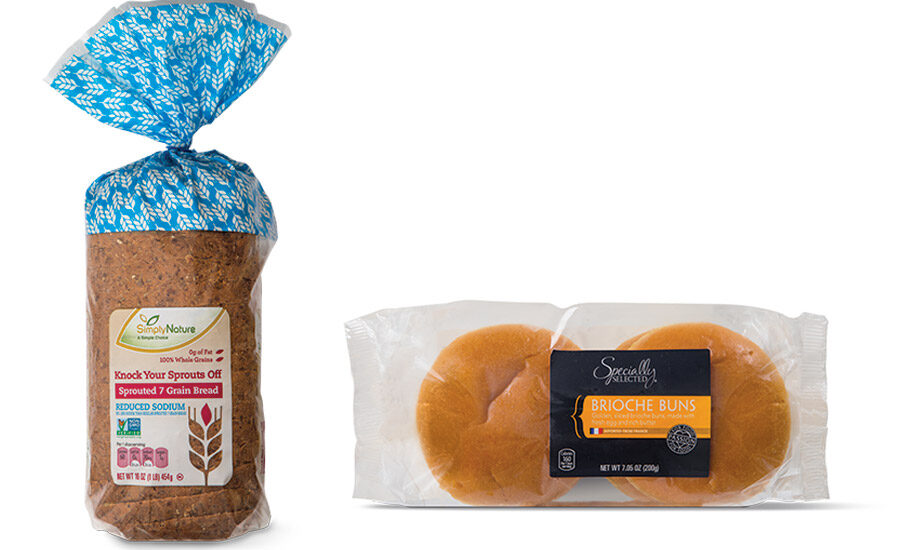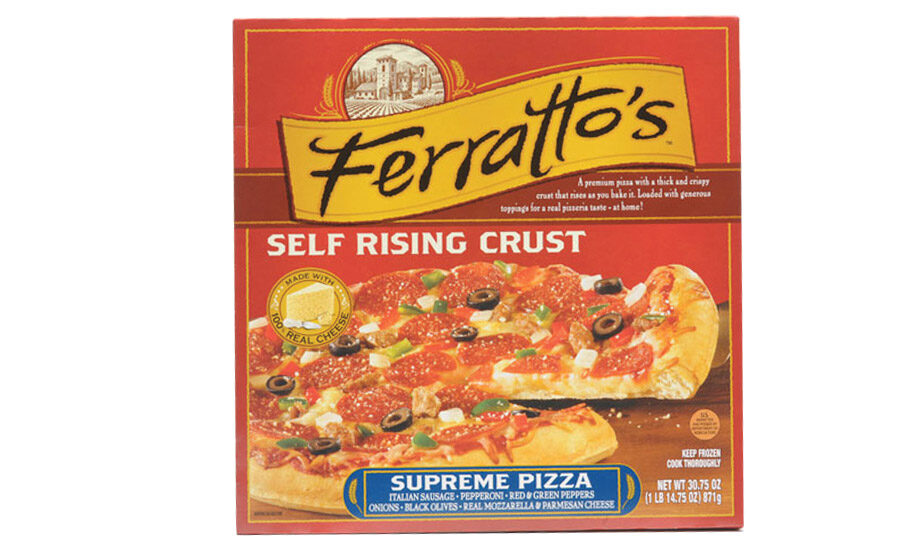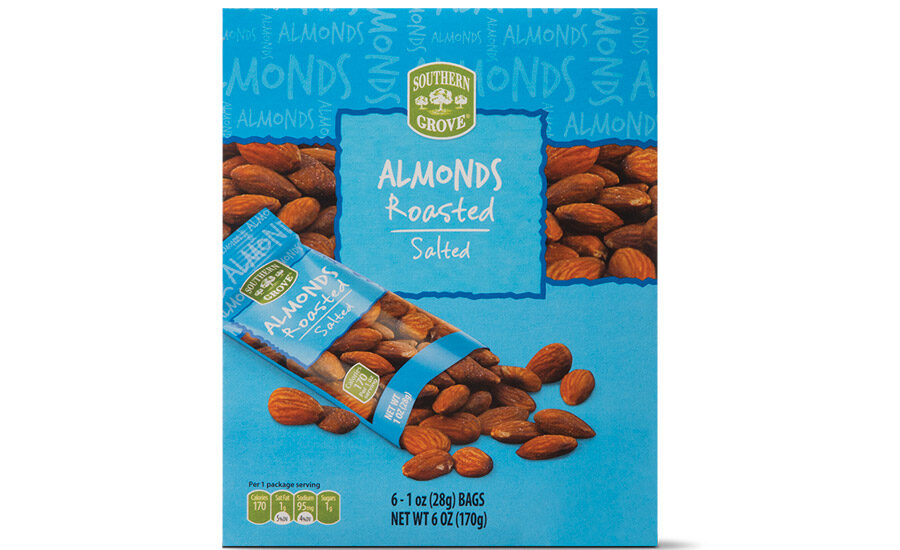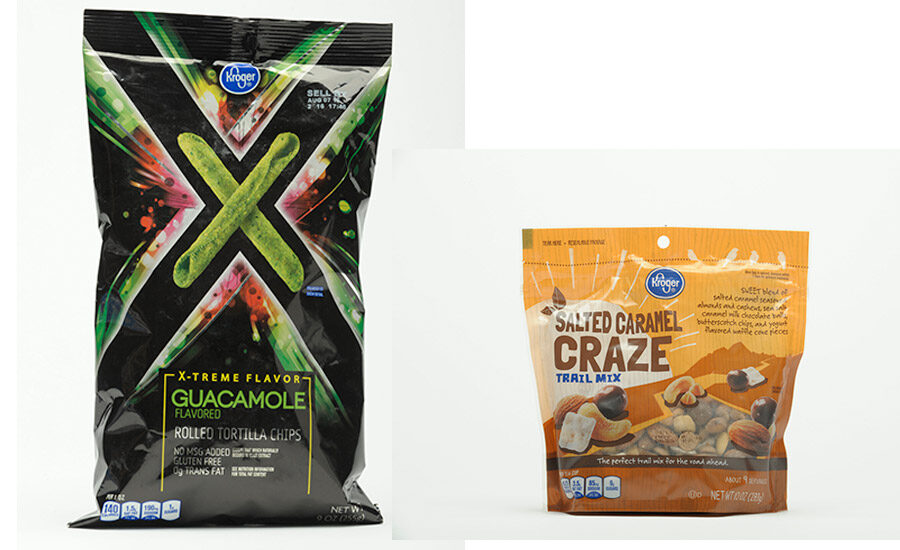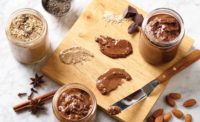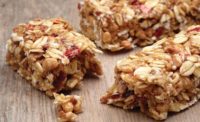Private label has come a long way from its “generic” years. Today, focuses are on premium, national-brand-better (NBB) offerings and clean eating—snack and bakery products that are part of the better-for-you category, including those that are gluten-free.
Private label foods are adapting to the needs and wants of today’s consumers. “The top trends in private label snacks and bakery products are similar to the trends we have observed in the branded categories,” says Ricardo Rodriguez, marketing manager, confectionary and bakery, Ingredion Inc., Bridgewater, NJ. “For example, clean and simple labeling, non-GMO, gluten-free and functional snacks that deliver added fiber and protein and vegetable-based ingredients like pulse flours and proteins.”
Consumers are not always sure what “better for you” means, but “generally speaking, it includes items with clean labels, that are gluten-free, that contain no trans fats or are ‘free from’ certain ingredients,” comments Jen Linke, vice president of category management, Federated Group, Arlington Heights, IL.
Trends in private label include minimal ingredients, clean label and using locally sourced ingredients, according to the 2016 “Trend Insight” report from FONA International. The report notes that 55 percent of consumers said that they would pay more for a store brand that had minimal ingredients, and almost 58 percent find store brands with simple ingredients worthy of their hard-earned cash. Consumers are more apt to consider products with ingredient lists that are “short and simple,” and product claims like “organic” make it easier for them to consider buying a private label brand.
Branding through flavor
Flavors are becoming more innovative, while keeping true to the better-for-you trend. “We’re seeing ‘more of the good’ taking over from ‘less of the bad,’” says Gunther Brinkman, vice president, contract manufacturing, Ideal Snacks Corp., Liberty, NY. “Lower fat and lower sodium are still important in private label, but just by walking the store you’ll see more innovative flavors, unique ingredients and increased levels of nutrients being the attributes that marketers are trying to use to differentiate themselves.”
In the past, national-brand-equivalent (NBE) store brands were a good alternative for consumers because of their lower price point for largely the same products—and those patterns continue. But private label has grown more diversified, with NBB products resonating with shoppers. “The improvement of the economy means that many consumers might not go directly to private label for cost alone,” comments Allyson Martin, market manager, FONA International, Geneva, IL. “We’re seeing a lot of flavor creativity, which is really exciting. Private label brands are offering flavors that play with fermentation, ethnic cuisine and salty-sweet combinations.”
Trader Joe’s is a great example of NBB innovation. This past summer, the store-brand-focused retailer had a mango summer theme, which featured its Mango Joe-Joe cookies (mango filling sandwiched between two mango cookies), among other mango products. In its signature “Fearless Flyer” mailer, the retailer proclaimed, “The secret to your summer 2016 happiness lies not in fame, fortune or political power, but in mango.”
This approach builds a culture of store-brand-forward identity for the retailer. “We saw Trader Joe’s carry this theme across several product categories and meal or snacking occasions—mango products tie very well to several current consumer trends, including the desire for natural products and simple ingredients, since natural mango flavors often reflect that expected intense sweetness without the need for artificial sweeteners,” adds Martin.
Snacking on innovation
Diverse ethnic flavors are on-trend, as well. Trader Joe’s also recently introduced Bollywood popcorn, a ready-to-eat (RTE) product flavored with vegan tikka masala seasoning.
“Trader Joe’s is always at the forefront of snacking innovation and trends, and it takes advantage of global and ethnic flavors with its Giant Peruvian Inca Corn and Bollywood Popcorn,” notes Andrew Moberly, director, category solutions, Daymon, Stamford, CT. Giant Peruvian Inca Corn is the retailer’s take on larger-sized corn nuts.
Store brand chips have also been displaying a strong level of innovation and new flavors. Nutritionally inspired varieties, like those made of kale, lentils and diverse—often gluten-free—grains, are becoming more popular.
“There are many private label offerings including kale chips, quinoa chips, hummus chips, lentil chips, along with many different flavors with each type,” says Linke.
“Trader Joe’s has a number of snack items that incorporate leading-edge flavors, such as its Ghost Pepper Potato Chips,” says Brinkman. He also points to the retailer’s Kettle Popped Sweet & Salty Popcorn Chips, a popped pellet snack made with quinoa, as well as chia, flax and sunflower seeds.
“In the ‘better-for-you’ snack space, innovating and differentiating from the national brand seems to be a more common strategy than it is in some other categories,” adds Brinkman.
Diverse snacks are also popping up at ALDI, which continues to expand its U.S. footprint. “ALDI just ran an in-and-out on popped Cassava Chips in flavors like Maui Onion and Mango Chipotle, too,” says Brinkman.
Kroger has also found success with its own brand X-Treme Guacamole Rolled Tortilla Chips.
Frozen snacks, appetizers and pizza also benefit from flavorful and ethnic inspirations. “Shoppers are clearly demanding new and unique private brand options in these subcategories,” says Moberly.
As part of its Archer Farms line, Target carries Chicken Poblano Firecrackers, as well as a Jamaican-Style Jerk Chicken Artisan Pizza. More than 35 items have been launched so far in 2016 in Target’s Simply Balanced line, which also includes sprouted whole-grain breads.
Tracking the trends
This sense of adventure needs to mesh well with prevailing shopper sensibilities. “Although there is still a place for the value tier within private label, it’s growing smaller as the snack category has moved to NBE—and with the newest growth into the NBB segment, as healthy snacks continue to grow. The NBB segment is the next opportunity to grow private label snacks, because you can do so many unique things with flavor profiles and mixes,” notes Linke.
“Smart private brand operators are trying to evolve in parallel with the national brands—offer innovation, but don’t get too far ahead of what the brands are doing,” remarks Brinkman.
Chips, extruded snacks and pretzels are seeing the most growth in the NBE and NBB segments. “In these categories, private label has been able to keep up with the level of innovation of their branded counterparts,” says Rodriguez. He notes that private label unit pricing from 2009–15 has increased 27 percent, while during the same timeframe, branded has grown by 18 percent; price premiumization for private label is now catching up to branded.
The landscape of what was once considered NBB is changing, too. According to Moberly, national brands are cleaning up their ingredients, making commitments to have specific ingredients removed by certain dates, and pivoting to more premium offerings.
“Private label snack manufacturers and retailers need to make adjustments now to avoid offering what is currently a ‘premium’ item that will quickly become NBE,” cautions Moberly.
Amazon gets in on the action
Amazon.com is the clear leader today in e-commerce, and private label is the category leader in trail mix, with nearly 50 percent dollar share per IRI. So it only makes sense that one of Amazon’s first forays into private label snack foods would be in trail mix.
Amazon’s Happy Belly line currently includes nuts and trail mixes, and its Wickedly Prime line will also reportedly include other snack foods. The Happy Belly Sweet & Spicy Trail Mix features hot and spicy peanuts, butter toffee peanuts, Cajun sesame sticks, toasted corn, honey sesame sticks, and almonds.
Happy Belly snack products are currently reserved for Amazon Prime members only—if you’re not a Prime member and try to purchase them, the site suggests a free 30-day trial of Prime. Although Amazon doesn’t disclose how many Prime members it currently has, analysts have estimated the number at over 60 million.
Private label partnerships
There are many qualities and capabilities that can make a private label manufacturing partner attractive to retail private label buyers and those seeking customized formulations.
For example, large retailers hone-in on suppliers that can provide cost advantages through economies of scale, and vertical integration, says Moberly. “These retailers are less likely to rely or ask for category management support or store support services, because they have programs and processes in place.”
On the flip side, smaller or regional retailers prefer more back office and in-store services, including assistance with category management and merchandising.
“The best private label manufacturers are dynamic, flexible, aware of what their customer needs, and delivers on those needs,” adds Moberly.
Vertical sourcing and manufacturing integration, economy of scale, category analysis capabilities, merchandising assistance, and packaging innovation all can make a manufacturing partner attractive. However, R&D capabilities are also important.
“A key capability that is changing how private label is able to gain market share and price premiumization is investment in their own R&D capabilities, which allows them to innovate in key categories,” comments Rodriguez.
Private label will continue growing in better-for-you, healthier options. “The ‘good-for-you’ snacks will continue to be the next big wave, as more manufacturers continue to expand into new ingredients in a salty snack, from beetroot to parsnip and plantain chips,” says Linke. “All of these items are marketed to being a healthier option versus what has been offered in the past.”
Read more at our web exclusive: Private label preferences and millennials
